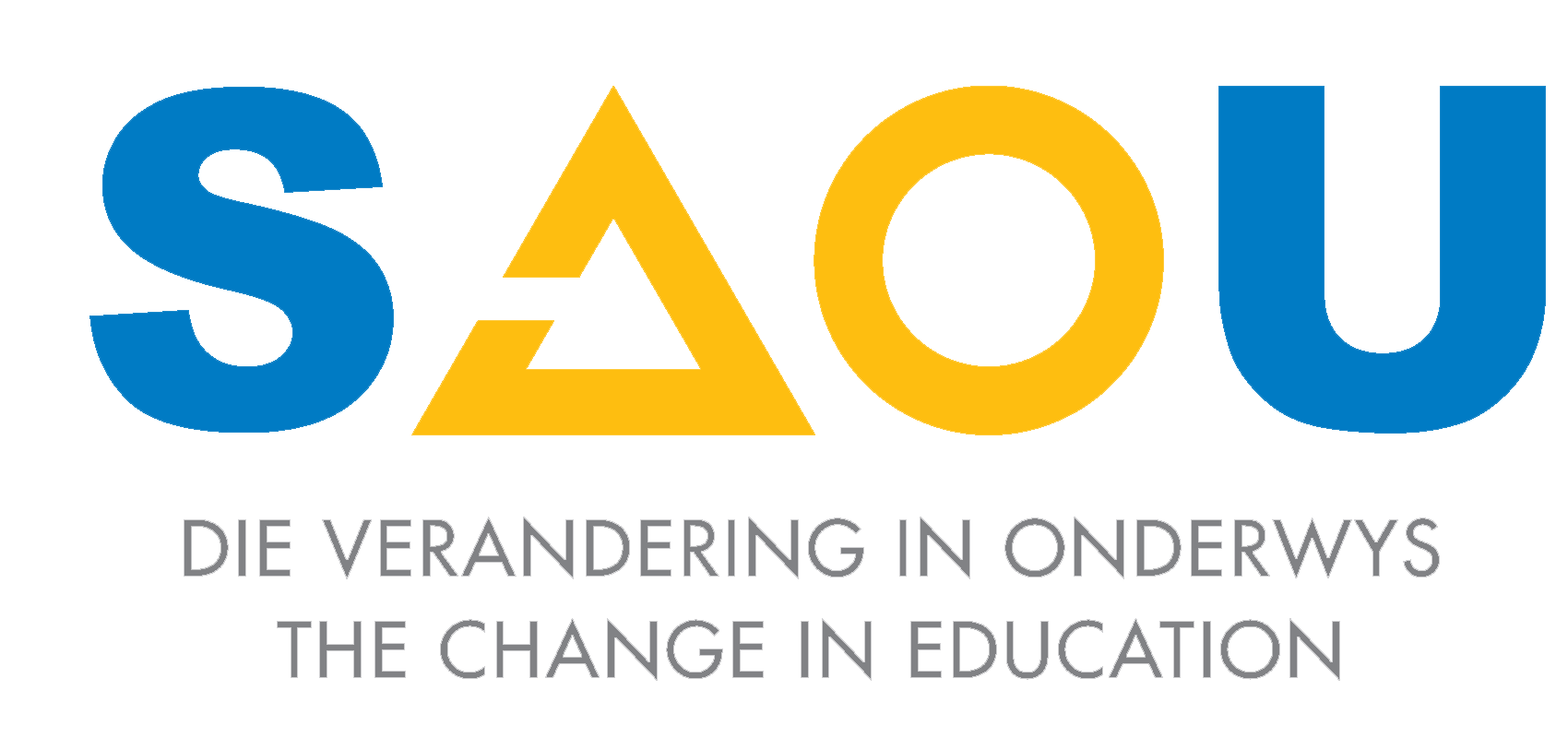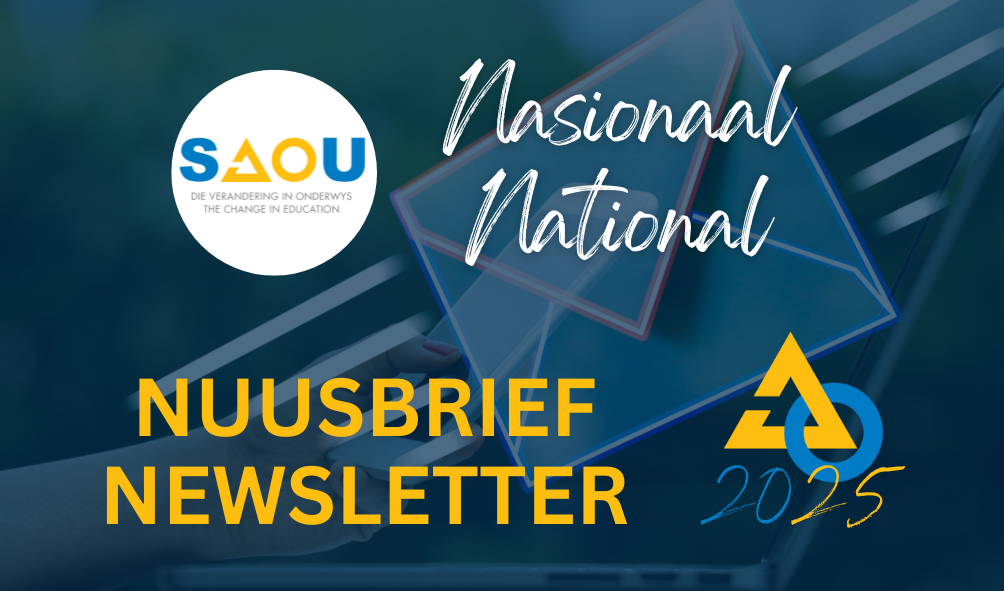
NN 07/2025
VEILIGER INTERNETDAG
Op die 11de Februarie word Veiliger Internetdag gevier. Die tema vir 2025 is “Te goed om waar te wees? Hoe om jouself en ander van aanlyn bedrog te beskerm.”
Digitale geletterdheid is een van die aspekte wat aan leerders onderrig behoort te word en kan nie tot een vak beperk word nie. Sosiale media het egter die afgelope paar jaar ook 'n belangrike hulpmiddel geword vir organisasies en instellings om nuwe geleenthede vir aanlyn kommunikasie, betrokkenheid, sowel as vir die vinnige en maklike digitale verspreiding van inligting, te bied.
Sommige van die interessantste kenmerke wat hierdie platforms bied, is die vermoë om foto's, video's, dokumentasie en inligting te deel, terwyl dit ook die geleenthede bied om met ander in hul sosiale netwerk te skakel. Dit bied ook 'n verskeidenheid gereedskap vir organisasies en instellings om met die verskeie belanghebbendes te skakel en op nuwe maniere te meng.
Die gewildste aanlynplatforms in Suid-Afrika vir 2024 was (Metwater):
WhatsApp, Facebook, TikTok, Instagram, Facebook Messenger, Twitter, LinkedIn, Pinterest, Telegram en Snapchat.
Die bekende gesegde "’n wolf in skaapklere" waarsku teen individue of situasies wat bedrieg en as gevaarlik beskou word. Dit is presies hoe opvoeders sosiale media in die hedendaagse samelewing moet hanteer.
Daar is talle gevare wat agter blykbaar nuttige, prettige en onskadelike sosiale media-platforms skuil, sowel as die verskeie kenmerke wat dit bied.
'n Ontstellende tendens bestaan in opvoeders wat betrokke raak by dissiplinêre prosedures weens wangedrag in terme van sosiale media-gebruik en interaksie met leerders en kollegas via sosiale media. Dit is dus van uiterste belang dat opvoeders bewus en waaksaam is oor die gevare wat dit inhou.
Daar is egter ‘n paar goue reëls wat gevolg behoort te word:
- Verseker dat privaatheid- en sekuriteitstellings op die internet en sosiale netwerke korrek gestel word. Die doel hiermee is om te verseker dat privaat inligting slegs deur die korrekte ontvangers gesien word. Dit geld ook vir onderwysers en skole wat foto’s en inligting van leerders op sosiale media plaas, wat moontlik in die verkeerde hande kan val. Verseker dat ‘n beleid van die goedkeuring van volgers is met Facebook en Instagram en dat hierdie volgers goedgekeur word. Dit is nodig om die lys gereeld te hersien en te verseker dat persone wat nie meer ‘n belang by die klas of skool het nie, verwyder word.
- Whatsapp-kommunikasie is ook onderhewig aan die veiligheidstellings. ‘n Voorbeeld hiervan is wanneer u byvoorbeeld ‘n klas- of vakgroep het, is almal wat op die groep is se selfoonnommer vir almal in die groep beskikbaar.
- Eenmaal geplaas, altyd geplaas, is die aanvaarde norm. Enige inligting wat op die internet geplaas is, is vir altyd beskikbaar en dit plaas dus ‘n verantwoordelikheid op onderwysers en skole om met versigtigheid om te gaan tydens die plasing van inligting rondom leerders, foto’s en die deel van geografiese inligting oor die beweging van leerders. Dit is daarom belangrik om vooraf toestemming van ouers te vra indien foto’s of inligting van leerders geplaas word. ‘n Verantwoordelike vertrekpunt is om twee of drie keer te dink voordat inligting geplaas word – Wat is die beeld wat hierdie inligting oordra? Hoe stel ek myself/die skool daardeur bloot?
- ‘n Vierde goue reël is om leerders bewus te maak dat persoonlike inligting persoonlik gehou moet word. In die digitale era waarin ons beweeg is dit moontlik om identiteitsdiefstal te pleeg en ook finansiële inligting te bekom en uit te buit. Die gebruik van openbare WiFi dienste is te alle tye riskant. Skole behoort ook te verseker dat WiFi wat op die skoolterrein beskikbaar is deur die nodige sagteware en stellings beskerm word. Hierdie sagteware moet gereeld opgedateer word om die nuutste virusse en aanvalle te kan afweer.
- Onderwysers en skole word veral geteiken deur e-posse en skakels wat deur strooipos versprei word. ‘n Goeie riglyn is om hierdie tipe inligting onmiddellik te verwyder en om stelsels op te stel dat die versenders van hierdie inligting dadelik geblok word.
- Dit het ook betrekking op uitnodigings op sosiale media wat gestuur word. Dit is nie nodig om elke uitnodiging wat ontvang word te aanvaar nie.
- Vir leerders en onderwysers is een van die groot gevare om geo-opsporing te aktiveer deur die sogenaamde “check ins” wat dadelik aandui waar en wanneer iemand op ‘n spesifieke tyd is. Dit stel leerders bloot aan persone wat roof maak op jonger persone.
Die SAOU bejeën die onderwerp van internet veiligheid in ‘n baie ernstige lig en daarom word daar gereeld nuusbriewe en aanbiedings oor hierdie aangeleentheid versprei om lede op hoogte van sake te hou.
Aanlynhulpbronne vir die onderrig van digitale veiligheid is beskikbaar by:
https://saferinternet.org.uk/safer-internet-day/safer-internet-day-2025/education-resources
Wat is die statistieke oor die gebruik van sosiale media?
In onlangse studies wat deur Statista en Forbes gedoen is, is daar gevind dat daar in Julie 2024, 5.45 biljoen internetgebruikers wêreldwyd was. Dit is 67.1% van die wêreldbevolking. Van hierdie totaal is 'n verstommende 63.7% van die wêreldbevolking sosiale media-gebruikers.
Indien jy twyfel of vrae het oor die onderwerp, moet asseblief nie huiwer om jou provinsiale SAOU-kantoor of die SAOU Regsafdeling te kontak nie.
2025/02/11
SAFER INTERNET DAY
Digital literacy is one of the aspects that should be taught to learners and cannot be limited to a single subject. However, in recent years social media have also become an important tool for organisations and institutions to offer new opportunities for online communication, engagement, as well as the fast and easy digital sharing of information.
The most popular online platforms in South Africa for 2024 were (Metwater):
WhatsApp, Facebook, TikTok, Instagram, Facebook Messenger, Twitter, LinkedIn, Pinterest, Telegram, and Snapchat.
There are numerous dangers which loom behind seemingly useful, fun and harmless social media platforms and the various features they have to offer.
However, there are a few golden rules that should be followed:
- Ensure that privacy and security settings on the internet and social networks are correctly configured. The aim here is to ensure that private information is viewed only by the correct recipients. This also applies to teachers and schools posting photos and information about learners on social media, which could potentially fall into the wrong hands. Ensure that on Facebook and Instagram, there is a policy for approving followers, and that these followers are approved. It is necessary to regularly refresh the list and ensure that individuals who no longer have an interest in the class or school are removed.
- WhatsApp communication is also subject to security settings. An example of this is that if you have a class or subject group, everyone’s cell phone number in the group is available to all members of the group.
- "Once posted, always posted" is the accepted norm. Any information posted on the internet is available forever, thus placing a responsibility on teachers and schools to handle the posting of information regarding learners, photos, and the sharing of geographical information about learners' movements with caution. It is therefore important to ask for prior consent from parents if photos or information about learners are to be posted. A responsible starting point is to think two or three times before posting information – What image does this information convey? How am I exposing myself through this?
- A fourth golden rule is to make learners aware that personal information should be kept private. In the digital era we are moving through, it is possible to commit identity theft and also obtain and exploit financial information. The use of public Wi-Fi services is always risky. Schools should also ensure that Wi-Fi available on the school premises is protected by the necessary software and settings. This software should be regularly updated to combat the latest viruses and attacks.
- Teachers and schools are especially targeted by emails and links distributed through spam. A good guideline is to immediately delete this type of information and set up systems to ensure that the senders of this information are stopped immediately.
- This also applies to invitations sent on social media. It is not necessary to accept every invitation that is received.
- For learners and teachers, one of the major dangers is activating geolocation through so-called “check-ins,” which immediately indicate where and when someone is at a specific time. This exposes learners to individuals who prey on younger people.
The SAOU takes the issue of internet safety very seriously, and therefore regularly issues newsletters and presentations on this matter to keep members informed.
Online resources for teaching digital safety are available at:
https://saferinternet.org.uk/safer-internet-day/safer-internet-day-2025/education-resources
What are the statistics on social media usage?
In recent studies conducted by Statista and Forbes it was found that in July 2024, there were 5.45 billion internet users worldwide. This amounts to 67.1 % of the global population. Out of this total, an astonishing 63.7% of the world's population, are social media users.
If you have doubts or questions on the matter, please do not hesitate to contact your provincial SAOU office or SAOU Legal Department.








